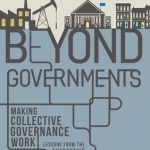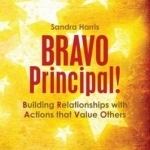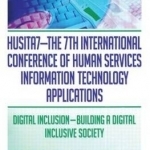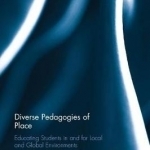
Beyond Governments: Making Collective Governance Work - Lessons from the Extractive Industries Transparency Initiative
Book
In a world characterized by globalization, governments increasingly find themselves unable to...
Fundamentals of Charged Particle Transport in Gases and Condensed Matter
Ron White, Robert E. Robson and Malte Hildebrandt
Book
This book offers a comprehensive and cohesive overview of transport processes associated with all...
Understanding Special Educational Needs and Disability in the Early Years: Principles and Perspectives
Book
This key text provides essential tools for understanding legislation, policy, provision and practice...

Bravo Principal!: Building Relationships with Actions That Value Others
Book
It is only through effective leadership actions that principals can become outstanding leaders. By...

HUSITA7- The 7th International Conference of Human Services Information Technology Applications: Digital Inclusion - Building a Digital Inclusive Society
C.K. Law, John Yat-Chu Fung and Yu Cheung Wong
Book
In today's information society, to make a real and lasting impact on human welfare takes...
RavenclawPrincess913 (253 KP) rated A Multitude of Dreams in Books
Sep 10, 2023
Author: Mara Rutherford
My favorite read of the year would be A Multitude of Dreams by Mara Rutherford. In the beginning of this book it takes place during the after math of a horrible plague called the Mori Roja which basically causes the patient to bleed out and die. Only ways people can survive the mori Roja are to die and be reborn, never come in contact with the plague or be immune.
Princess Imogen of Goslind has been locked in the palace with many other higher born citizens for the past four years during the plague she wants to be set free same with many others but the king will not allow that. After Nico impersonating a prince shows up they quickly learn being locked up is what helped them survive so long but it is no longer possible when the food runs out.
When Nico realizes that Lord Crane is a reborn and learns of his plans he decided to impersonate a prince who died on his way to meet the princess for a marriage agreement. He died by a reborn. He does this to try to warn and save the people of the palace but he has no success when Lord Crane and other reborns invade the palace killing many.
This being the best book I read of 2023 I am having a hard time choosing just one part I loved the most in it. I did enjoy that Princess Giselle got the karma that was coming for her it was one hundred percent deserved. The story was really well written and extremely hard to put down. Another part I loved were all the moments between Jocelyn and Princess Imogen. Honestly only part of this book I disliked was that Jocelyn and Imogen didn't end up together. I thought they would because they were giving off more that friend vibes with the kisses and stuff.
When it comes to the characters my favorites were Jocelyn and Princess Imogen. I loved them from the beginning. One character who gave bad vibes and I knew couldn't be trust was Lord Crane. I could just tell there was something up with him. On the other hand Nico and Colin were both very trustworthy from the beginning. I didn't like Giselle, Henry or Branson either. Princess Giselle I could tell she was a backstabber. Henry I could tell he had an alternative motive and couldn't be trusted. Same with Branson. This book had a very good character development.
I recommend reading this if books based during or after a plague interests you. I also recommend if you enjoy books about vampires.
Ornamental Palm Horticulture
Timothy K. Broschat, Alan W. Meerow and Monica L. Elliott
Book
Comprehensive in scope and based on research from worldwide sources, Ornamental Palm Horticulture...

Japanese Design: Art, Aesthetics and Culture
Book
**Winner, Choice Magazine Outstanding Academic Title 2015** This Japanese design book presents the...

Diverse Pedagogies of Place: Educating Students in and for Local and Global Environments
Book
Diverse Pedagogies of Place presents eight original place-responsive pedagogies that address a...
Hokusai X Manga: Japanese Pop Culture Since 1680
Sabine Schulze and Nora von Achenbach
Book
Anime and manga are powerful pop-culture phenomena, capturing people's imaginations in the pages of...
